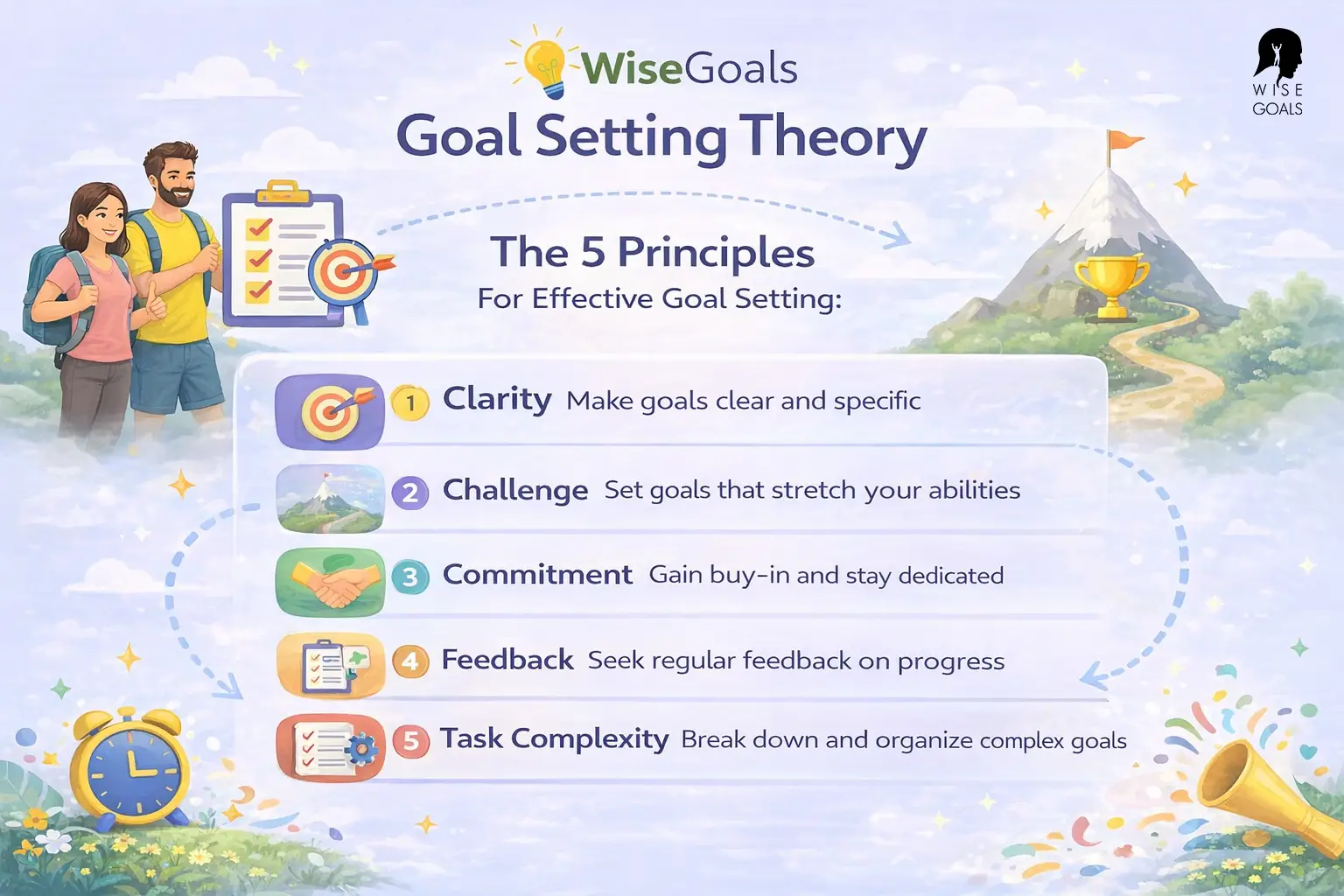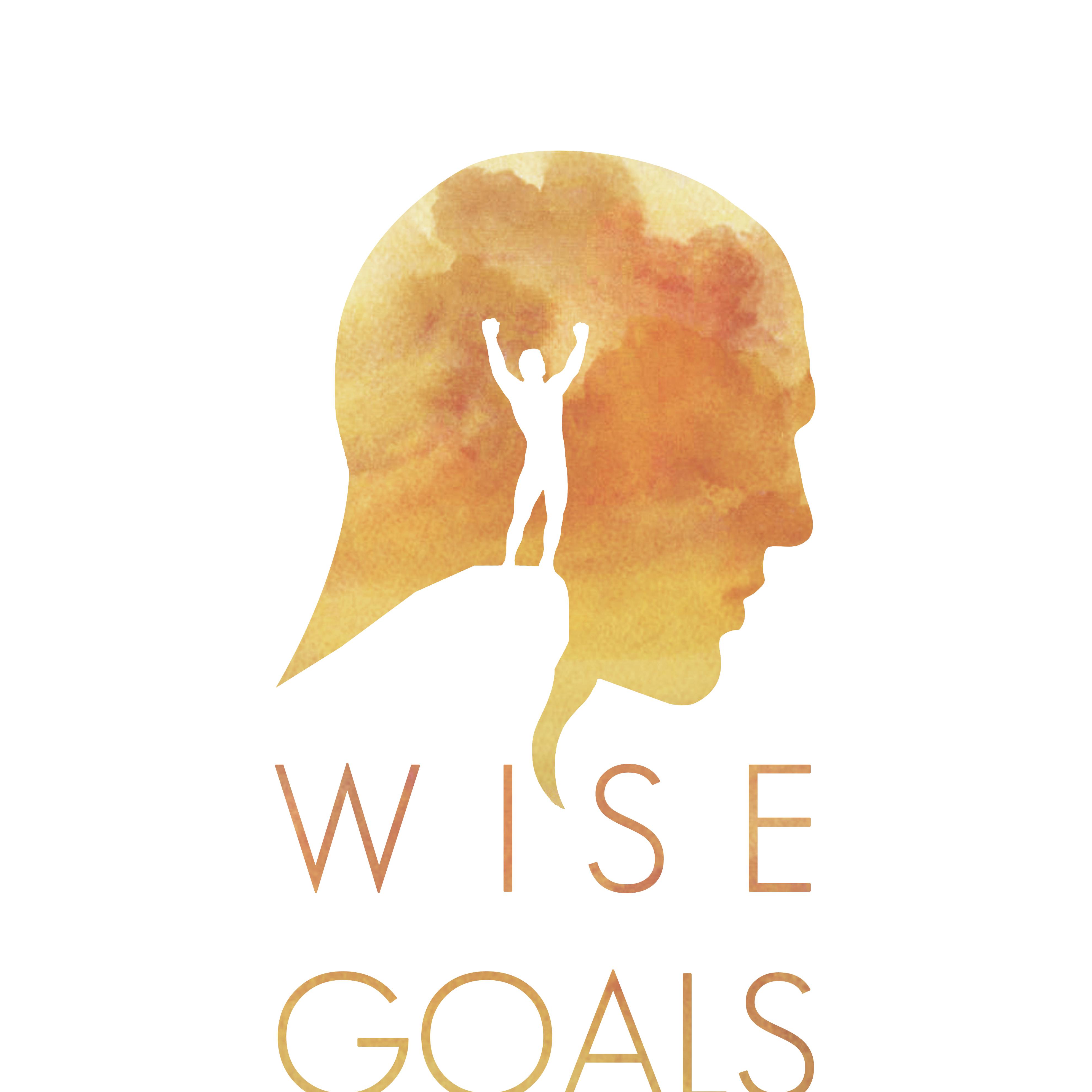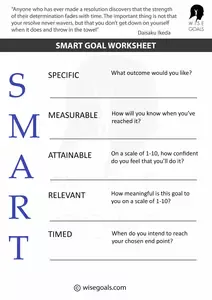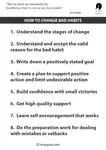- Home
- Learn Goal Setting
- Goal Setting Theory
Goal Setting Theory – Creating Motivation Through Clear Goals
Use goal setting theory to improve how you set goals
Want to understand exactly what Goal Setting Theory is and how to use it to improve your goal setting?
Goal Setting Theory explores the powerful connection between setting goals and boosting your motivation. Below, you’ll learn how this theory explains why certain goals inspire better performance—and how you can apply it to your own goals for greater success.

The Ancient Roots of Goal Setting
Goal setting is not a new idea. Its foundations stretch back thousands of years to ancient philosophy:
- Aristotle, student of Plato, speculated that having a purpose or goal drives action.
- Confucius (550 BC) advised, “When it becomes obvious that the goals cannot be reached, don't adjust the goals, adjust the action steps.”
- Henry David Thoreau (1800s) said, “What you get from achieving your goals is not as important as what you become from achieving your goals.”
These early thinkers understood that goals shape not only what we do but who we become.
Edwin Locke’s Ground-breaking Research
Inspired by Aristotle, psychologist Edwin Locke began studying the scientific relationship between goals, motivation, and performance.
In 1968, Locke published “Toward a Theory of Task Motivation and Incentives,” where he showed:
- Challenging goals lead to higher performance than easy goals.
- Specific and difficult goals outperform vague “do your best” goals.
- Intentions influence actual behavior and results.
Locke’s work laid the foundation for modern goal setting science.
How Goals Motivate You: Four Key Mechanisms
Further research by Locke and colleagues identified four ways goals enhance performance:
- Directing Attention: Goals focus your mind on what matters.
- Increasing Effort: Goals energize you to work harder.
- Boosting Persistence: Challenging goals keep you going longer.
- Encouraging Strategy Development: Goals motivate you to plan and problem-solve.
These pathways explain how goals shape your behavior toward success.
What Makes Goal Setting Work Best?
Several factors can improve how effectively goal setting boosts performance:
- Adequate ability: You need the skills or knowledge to reach the goal (or support to develop them).
- Regular feedback: Information on progress helps you adjust effort and strategies.
- Rewards: Positive outcomes or incentives encourage sustained effort.
- Supportive environment: Encouragement from others helps maintain motivation.
- Goal acceptance: Goals are more effective when personally embraced or assigned clearly.
The Formalization of Goal Setting Theory (1990)
In 1990, Locke and Gary Latham combined extensive research (nearly 400 studies) into a comprehensive Goal Setting Theory, highlighting how:
- Effort increases once a goal is chosen based on perceived difficulty.
- Persistence improves with specific, challenging goals.
- Direction focuses attention and activates necessary skills for goal achievement.
Additional Insights from Goal Setting Theory
- Complex tasks: For very complex tasks, difficult goals can cause “tunnel vision.” Breaking goals into smaller steps helps.
- Importance of feedback: Ignoring feedback reduces performance gains.
- Commitment: Goals matter more when personally meaningful or publicly declared.
- Effort in goal setting: Time spent crafting clear, specific goals increases commitment and outcomes.
Recent Advances in Goal Setting Research
Locke and Latham’s 2013 book, New Developments in Goal Setting and Task Performance, captures the explosion of research since the 1990s, covering topics like:
- Pursuing multiple goals simultaneously
- The role of self-confidence in goal achievement
- Goal setting in education, therapy, leadership, creativity, and teams
- Applications in sports, entrepreneurship, health, and wellbeing
This rich body of research confirms goal setting as a vital tool across many fields — including the coaching I provide as a wellbeing coach and positive psychologist.
Why Goal Setting Theory Matters for You
Whether you’re pursuing personal growth, career success, or wellbeing, understanding the science behind goal setting can help you:
- Set clearer, more motivating goals
- Stay focused and energized over time
- Develop practical plans for success
- Recognize when to adjust your goals or approach
- Build confidence through measurable progress
Ready to harness goal setting theory to unlock your potential?
Explore our free goal setting worksheets and articles to start turning your ambitions into achievable outcomes.
Affiliated With
We are proud to be part of professional networks that value evidence-based practice, inclusion, and social impact.














